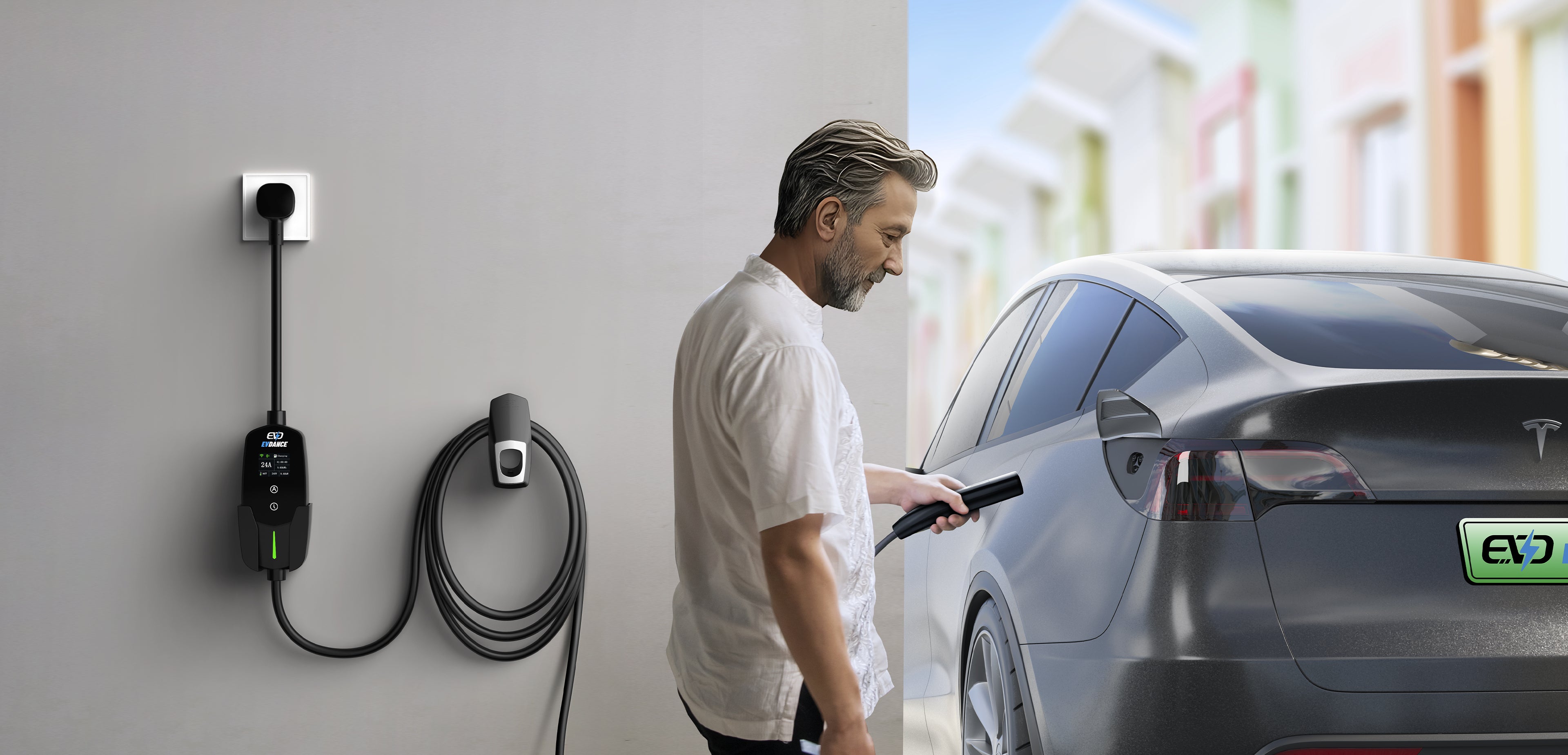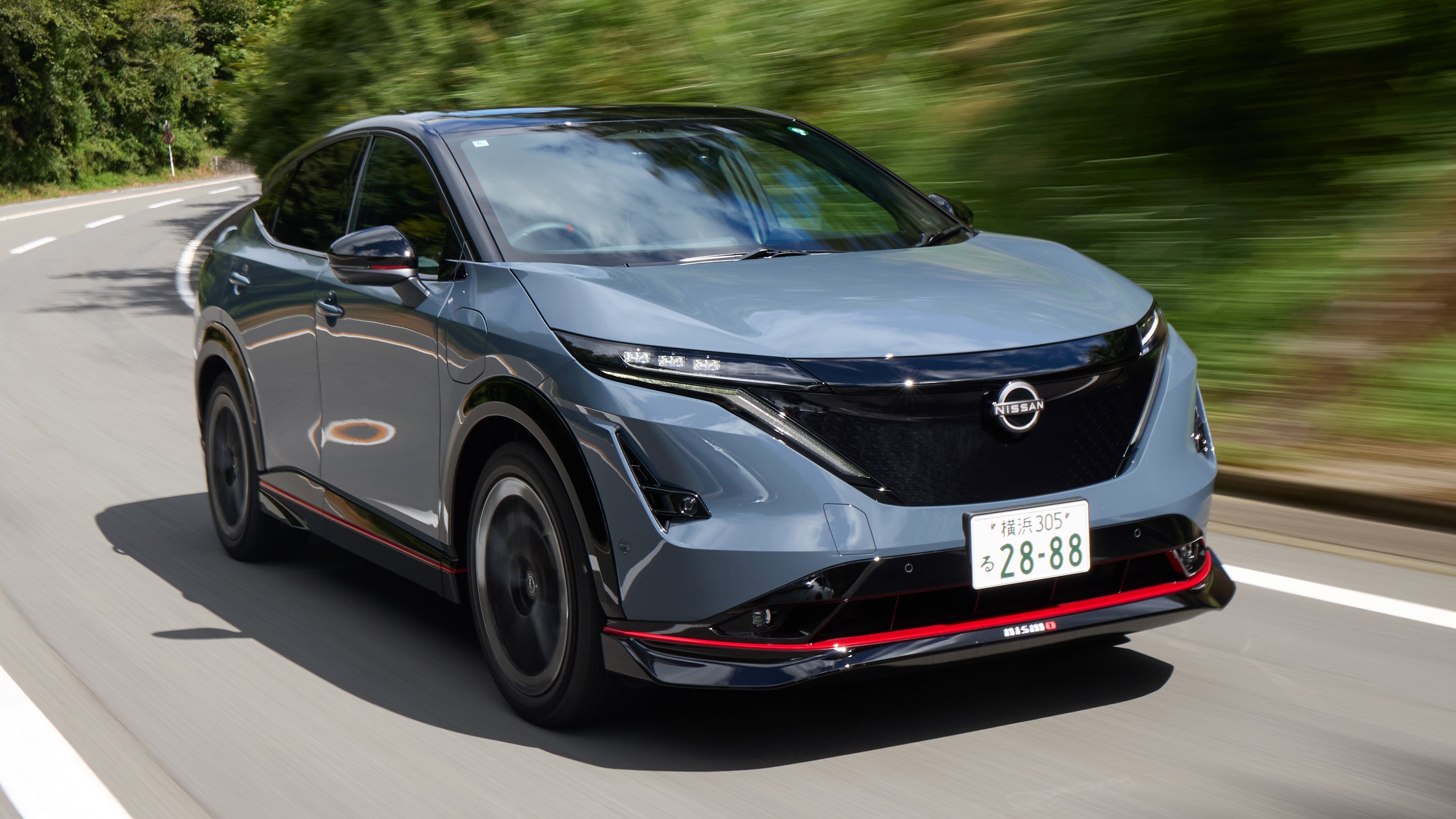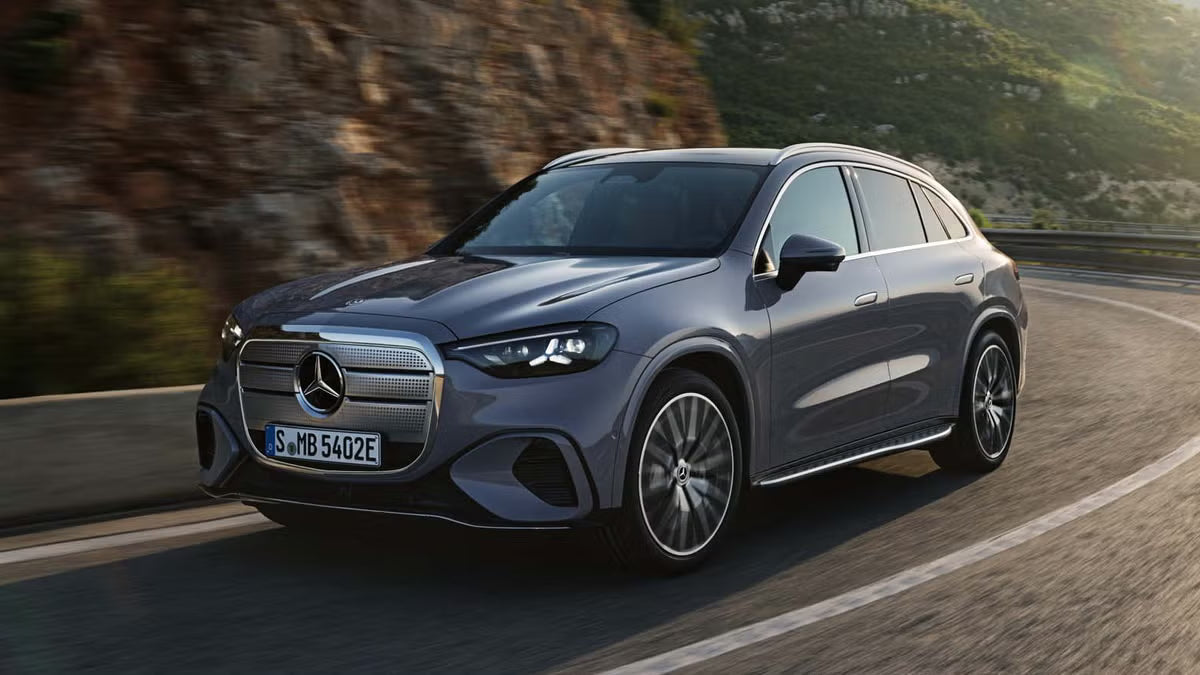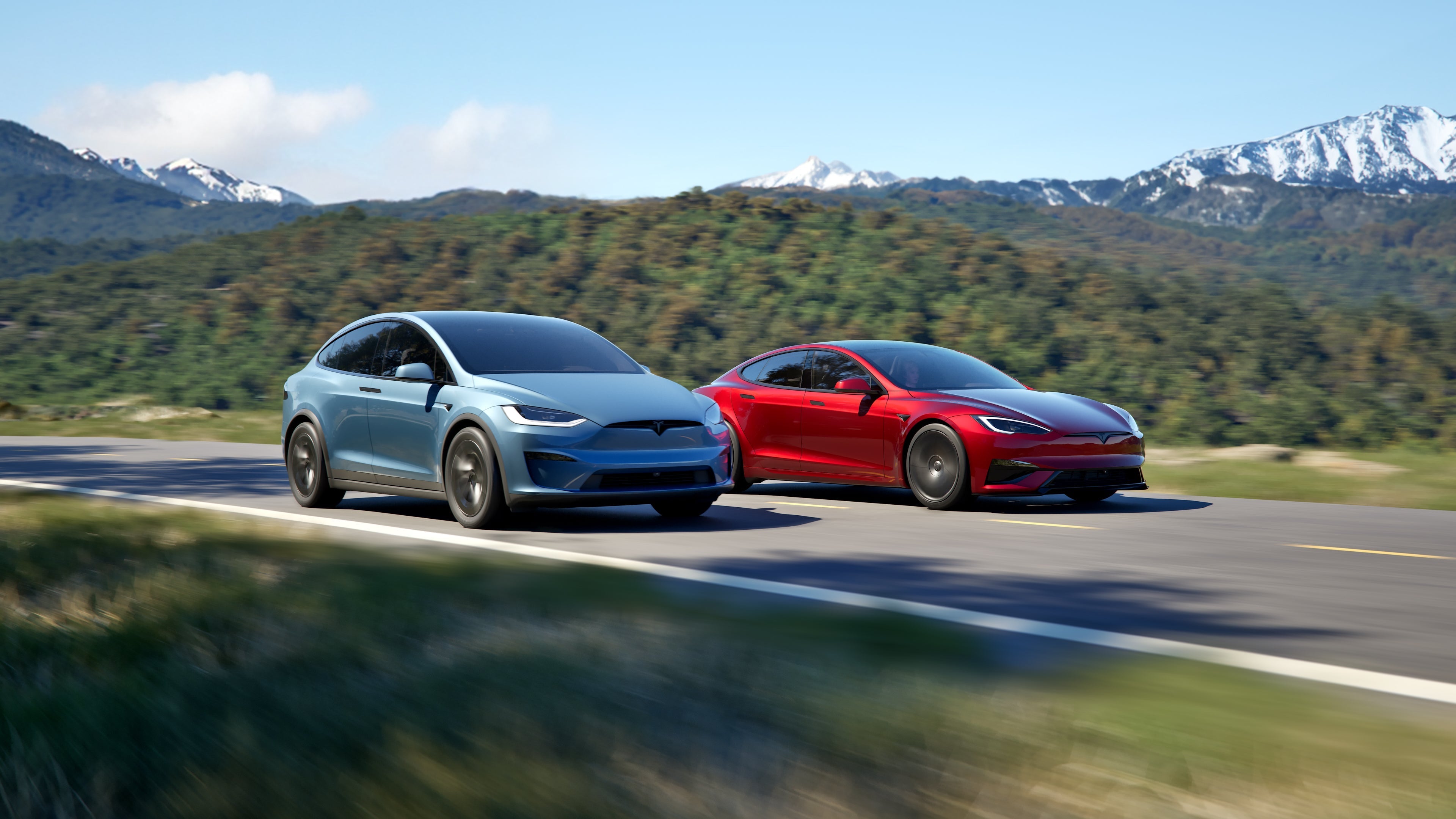Alors que les véhicules électriques (VE) se généralisent, les nouveaux acquéreurs se posent souvent une question intimidante : ce chargeur sera-t-il compatible avec mon véhicule ? Contrairement aux voitures à essence équipées d'une prise universelle, la recharge des VE implique un ensemble complexe de types de prises, de niveaux de puissance et de normes spécifiques aux constructeurs. Cet article vise à démystifier la compatibilité des prises pour VE et à aider les nouveaux propriétaires à aborder cette question cruciale avec clarté et confiance.
1. Que signifie réellement « compatibilité avec les prises EV » ?
La compatibilité des prises pour véhicules électriques (VE) désigne l' interopérabilité entre le port de charge d'un véhicule et la prise du chargeur . Cette compatibilité est non seulement mécanique (la compatibilité de la prise avec le port) mais aussi électrique (la compatibilité de la tension, du courant et des protocoles de communication).
Pour les nouveaux utilisateurs de véhicules électriques, cela conduit souvent à des questions telles que :
-
« Puis-je me brancher sur n’importe quelle prise de la maison ? »
-
« Ai-je besoin d’un chargeur spécifique à Tesla ? »
-
« Que se passe-t-il si je voyage et que je trouve une borne de recharge publique qui semble différente ? »
Comprendre la compatibilité dès le début permet d’éviter des erreurs coûteuses et de garantir une charge transparente à la maison et sur la route.
2. Types de prises électriques courantes en Amérique du Nord
Voici les types de prises les plus courants que les propriétaires de véhicules électriques rencontreront :
| Type de prise | Usage | Tension | Puissance typique | Notes |
|---|---|---|---|---|
| NEMA 5-15 | Prise domestique standard | 120 V | 1,4 kW | Utilisé pour la charge de niveau 1 (lent) |
| NEMA 6-20 | Prise dédiée 240V | 240 V | 3,8 kW | Chargement à vitesse moyenne, moins courant |
| NEMA 14-50 | Prise de sécheuse pour VR/extérieur | 240 V | 7,6 kW–9,6 kW | Populaire pour les chargeurs domestiques de niveau 2 |
| J1772 | Prise de charge CA universelle | 120 V–240 V | Jusqu'à 19,2 kW | Fonctionne avec presque tous les véhicules électriques (non Tesla) |
| NACS (Tesla) | Le connecteur propriétaire de Tesla | 120 V–480 V | 1,4 kW–250 kW | Devenir la norme pour toutes les grandes marques de véhicules électriques |
| CCS Combo 1 | Charge rapide CC | 400–800 V | Jusqu'à 350 kW | Bornes de recharge publiques |
| CHAdeMO | Ancienne norme DC | 400 V | Jusqu'à 62,5 kW | Principalement utilisé par Nissan LEAF, en cours de suppression |
Informations clés :
La plupart des nouveaux propriétaires de véhicules électriques utilisent soit le J1772, soit le NACS pour la recharge quotidienne. Savoir lequel utilise votre véhicule est la première étape.
3. Comment savoir quel type de prise votre véhicule électrique utilise
Lors de l'achat d'un véhicule électrique, en particulier d'occasion ou auprès d'un concessionnaire tiers, de nombreux propriétaires oublient de se demander : « Quelle prise prend-il en charge ? »
Voici comment vérifier :
-
Consultez le manuel de votre véhicule : il répertorie les types de prises CA et CC pris en charge.
-
Inspectez physiquement le port : les ports Tesla ont une conception élégante à un seul trou (NACS), tandis que la plupart des autres utilisent un J1772 rond à cinq broches.
-
Demandez à votre revendeur : intégrez-le à votre liste de contrôle d’achat.
Conseil de pro : si vous conduisez une Tesla, vous utilisez le NACS. S'il s'agit d'une autre marque, vous utilisez probablement le J1772 pour la recharge CA et le CCS pour la recharge rapide CC.
4. Erreurs de compatibilité courantes commises par les nouveaux propriétaires
Les nouveaux utilisateurs de véhicules électriques rencontrent souvent les pièges suivants :
-
En supposant que tous les chargeurs soient identiques
Un utilisateur branche un chargeur NEMA 14-50 chez lui sans vérifier que la voiture prend en charge la charge de niveau 2 — et ce n'est pas le cas. -
Acheter un chargeur Tesla pour un véhicule J1772
Les chargeurs Tesla peuvent être rendus compatibles avec un adaptateur, mais seulement si vous savez lequel acheter. -
Penser que les chargeurs publics fonctionnent universellement
Toutes les stations publiques ne prennent pas en charge à la fois CCS et CHAdeMO, et les superchargeurs Tesla ne prenaient historiquement en charge que les véhicules Tesla (cela est en train de changer). -
Ne pas vérifier les limites de puissance
Un véhicule ne prenant en charge qu'une charge de 32 A ne bénéficiera pas d'une prise murale de 50 A. Perte d'argent et de frais d'installation.
5. Pourquoi ce problème existe : la fragmentation du marché des véhicules électriques
Contrairement aux voitures à essence, le marché des véhicules électriques s'est développé avec des priorités spécifiques à chaque marque :
-
Tesla a créé son propre écosystème fermé pour le matériel et les logiciels de charge.
-
D’autres OEM ont suivi des normes universelles telles que J1772 et CCS.
-
Des marques japonaises comme Nissan ont soutenu CHAdeMO, aujourd'hui largement obsolète.
Cette fragmentation a laissé les consommateurs confus, avec plusieurs types de chargeurs pour différentes marques, normes de tension et réglementations régionales.
Changement récent : De nombreux constructeurs automobiles (Ford, GM, Rivian, Hyundai, etc.) adoptent désormais la prise NACS, réduisant ainsi la fragmentation à long terme.
6. Adaptateurs de prise pour véhicules électriques : combler le manque de compatibilité
Les adaptateurs sont souvent la solution la plus rapide et la moins chère aux problèmes de compatibilité :
-
Adaptateur Tesla vers J1772 : permet aux voitures non Tesla d'utiliser les chargeurs de destination Tesla.
-
Adaptateur J1772 vers Tesla : pour les conducteurs Tesla qui souhaitent utiliser des stations universelles de niveau 2.
-
CCS vers NACS (ou vice versa) : pour la compatibilité de charge rapide CC.
Attention : Tous les adaptateurs ne prennent pas en charge la charge rapide et ne sont pas tous certifiés. Privilégiez toujours les produits homologués UL ou recommandés par la marque.
7. Comment choisir la prise et le chargeur adaptés à vos besoins
Le choix de la bonne prise ou de la bonne norme de charge dépend de :
-
Type de véhicule : confirmez les modes de charge et le type de prise pris en charge par votre véhicule électrique.
-
Modèles de conduite : le kilométrage quotidien déterminera si vous avez besoin du niveau 1 ou du niveau 2.
-
Installation à domicile : Vérifiez vos prises existantes ou prévoyez un budget pour un électricien.
-
Préférence de marque : Certaines marques proposent des packs tout-en-un avec des prises et des chargeurs certifiés.
Accords suggérés :
| Exemple de véhicule | Prise/chargeur recommandé |
|---|---|
| Tesla modèle Y | Connecteur mural Tesla ou NEMA 14-50 |
| Hyundai Ioniq 5 | J1772 Niveau 2 avec 6-20 ou 14-50 |
| Nissan Leaf | Adaptateur J1772 + CHAdeMO |
| Ford Mustang Mach-E | Chargeur compatible NACS (à partir de 2025) |
8. Liste de contrôle de compatibilité pour les nouveaux acheteurs
Avant d'acheter un chargeur ou un boîtier EVSE, posez-vous les questions suivantes :
-
Cette prise convient-elle au port de charge de ma voiture ?
-
S'agit-il d'une charge rapide de niveau 1, de niveau 2 ou CC ?
-
Ai-je besoin d'un adaptateur ?
-
Cette prise est-elle certifiée ou répertoriée (par exemple, UL, Energy Star) ?
-
Est-il compatible avec le câblage de ma maison (120V/240V) ?
9. Tendances en matière de compatibilité des marques (2024-2026)
| Marque | Type de prise native | Plan d'adoption du NACS |
|---|---|---|
| Tesla | NACS | Déjà standard |
| Gué | J1772 → NACS | Changement complet d'ici 2025 |
| GM | J1772 → NACS | Adopter les modèles 2025 |
| Hyundai/Kia | J1772 | NACS dans les modèles 2025/2026 |
| Nissan | J1772/CHAdeMO | Passage au CCS/NACS |
| BMW/Mercedes | J1772/CCS | Transition en cours |
10. Réflexions finales : la compatibilité n'a pas besoin d'être compliquée
L'anxiété liée à la compatibilité est réelle pour les nouveaux acheteurs de véhicules électriques. Mais elle peut être résolue.
Par:
-
Comprendre les types de prises
-
Utiliser des adaptateurs vérifiés en cas de besoin
-
Vérification avant achat
-
S'appuyer sur des normes soutenues par la marque
…vous éviterez les maux de tête et vous vous assurerez que votre achat de VE démarre en douceur.
En résumé : nul besoin d’être ingénieur pour comprendre la compatibilité des prises électriques. Il suffit d’être bien guidé et d’avoir la confiance nécessaire pour poser les bonnes questions.








Partager:
Guide d'installation du chargeur EV de niveau 1 pour les nouveaux utilisateurs
Puis-je recharger mon véhicule électrique à la maison sans rien installer ?